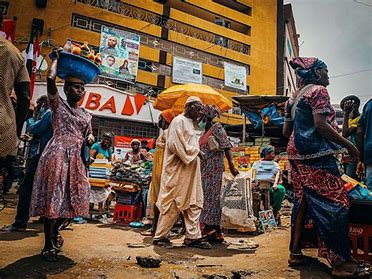10 Million Jobs in Sight Through AfCFTA Digital Trade
10 Million Jobs in Sight Through AfCFTA Digital Trade
By Achimi Muktar
Nigeria is setting the stage for a groundbreaking transformation in Africa’s digital economy, with an ambitious plan to create 10 million jobs by 2025 through the African Continental Free Trade Area (AfCFTA) Digital Trade Protocol.
Vice President Kashim Shettima made this revelation on Wednesday at the AfCFTA Digital Trade Workshop and Global Market, held at the State House Conference Centre in Abuja. Represented by the Minister of Industry, Trade, and Investment, Dr. Jumoke Oduwole, Shettima emphasized Nigeria’s strategic role as Africa’s Digital Trade Champion—a position that places the country at the forefront of the continent’s digital commerce evolution.
Nigeria as Africa’s Digital Trade Hub
The workshop, themed “Unlocking State Exports Potential,” convened federal and state government officials, private sector leaders, and trade commissioners. Speaking at the event, Shettima highlighted Nigeria’s pioneering role in mobile payments, digital transactions, and financial inclusion, which have reshaped cross-border trade across Africa.
“Nigeria’s innovations in digital commerce have laid the groundwork for a thriving digital economy,” Shettima stated. “With over 109 million internet users and a booming mobile economy, we are well-positioned to lead Africa’s digital trade revolution.”
Nigeria’s leadership in this space was cemented when President Bola Ahmed Tinubu pledged in December 2024 to champion the AfCFTA digital trade agenda. His commitment was formally recognized at the 38th African Union Heads of State Summit, where former Nigerien President Mahamadou Issoufou commended Nigeria’s dedication to driving the initiative.
A Digital-First Future for Africa
The AfCFTA Digital Trade Protocol aims to boost intra-African trade from 18% in 2022 to 50% by 2030. With Africa’s internet economy expected to contribute 5.2% of the continent’s GDP this year—reaching $180 billion from $115 billion in 2020—the potential for growth is staggering.
Nigeria is already taking bold steps to tap into this opportunity. Shettima pointed to key initiatives such as the National Talent Export Programme, the Outsource to Nigeria Initiative, and the 3 Million Technical Talents (3MTT) Programme, all designed to position Nigerian talent on a global scale.
To further streamline trade, Nigeria has modernized its passport application system and invested in port infrastructure, significantly reducing customs processing times. “We must move rapidly from policy to implementation—transforming digital trade into a catalyst for shared prosperity across Africa,” Shettima urged.
Seizing the Digital Opportunity
Kaduna State Governor, Senator Uba Sani, echoed these sentiments, warning that nations slow to embrace digital trade risk being left behind. Represented by Deputy Governor Dr. Hadiza Balarabe, Sani underscored the role of digital platforms in breaking down traditional trade barriers and enabling businesses—both large and small—to access global markets.
“We must seize this moment,” he declared. “With 65% of Nigeria’s population under 25, we have a unique demographic advantage to emerge as a global digital powerhouse.”
The Road Ahead
Nigeria’s recent endorsement as Africa’s Digital Trade Champion by the African Union is a clear signal of its commitment to shaping the continent’s digital future. With the AfCFTA Digital Trade Protocol set to address key areas such as digital identities, cross-border data transfers, financial technology, and online security, Nigeria is leading the charge toward a more connected and prosperous Africa.
As the country drives forward with this vision, the promise of 10 million new jobs by 2025 is more than just a target—it’s a bold declaration of Nigeria’s role in Africa’s digital transformation.


















